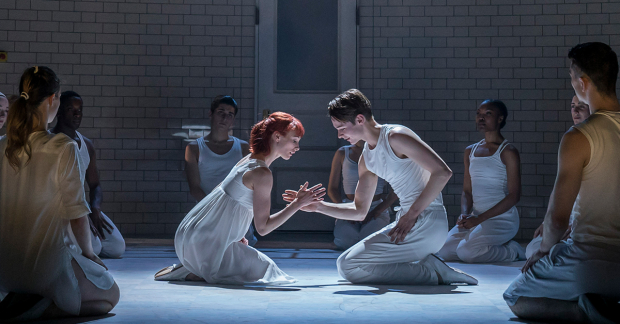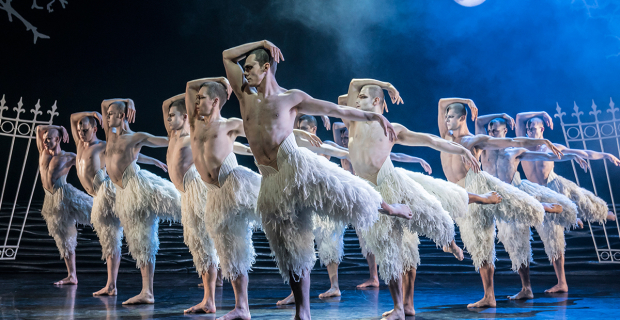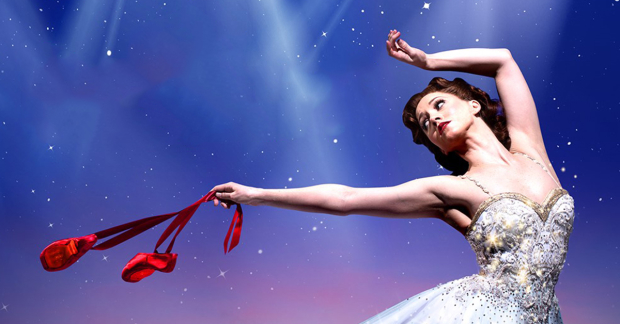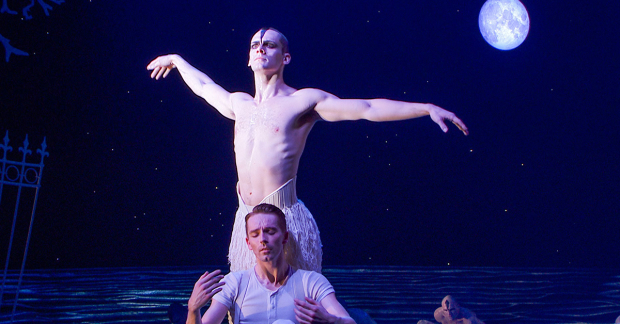Review: Matthew Bourne's Romeo and Juliet (Sadler's Wells)

© Johan Persson
How would Romeo and Juliet work without the feuding families? Very well indeed, judging by Matthew Bourne's inventive, at times chillingly violent adaptation, which reconfigures the warring Montagues and Capulets as a struggle between an open-minded youth and an oppressive, patriarchal regime.
The action is set to Terry Davies' chamber orchestra rendition of Prokofiev's score, and takes place "in the not too distant future" in the "Verona Institute". With its boys' and girls' dormitories, prowling security guards and steely-faced nurses, this seems to be somewhere between a school, a psychiatric hospital and a correctional facility; Lez Brotherston's white-tiled set, which is surrounded by high, wire mesh gates, suggests both clinical environs and an enclosure. Here, a pair of well-heeled parents deposit the apparently wayward Romeo, whose reluctance at joining the institution quickly vanishes when he meets fellow inmate Juliet.
In a great twist on Shakespeare's masked ball scene, a prim school dance morphs into a hormonal mass of writhing bodies once the adults have left. But the revelry is violently broken up by security guard Tybalt. Stalking the stage, muscles tensed, he's clearly intended as some sort of symbol of toxic masculinity – but it's an enormous shame that Bourne lazily semaphores this by having him rape Juliet. It's unnecessary for the narrative – and the resulting effect on Juliet is hugely underexplored.
Opening night was dramatic beyond the vicissitudes of life at the Verona Institute: half way through the first act the lights went up and Bourne wandered worriedly on stage to announce that Reece Causton, who was playing Mercutio, had injured himself – and we would have to wait for the stand-in. Luckily, a double was to hand: Bourne's New Adventures production is shared by two alternating companies (who are joined in each town by six young local dancers) so Mercutio Two, a plucky Ben Brown, bounded into the part, and the otherwise supremely slick show soon carried on as if nothing had happened.
Cordelia Braithwaite is perfect as the female lead – a visually arresting mover who captures Juliet's intelligence and spirit. Paris Fitzpatrick's performance as Romeo is understated in comparison, and he takes a while to get into the role – but by the end of act one he's an endearing ball of puppyish devotion. Also standout is Daisy May Kemp as both Romeo's mum and the kindly, chaotic Reverend.
It's a pity Bourne resorted to a shorthand of a rape scene to grapple with the urgent issue of male violence. But this is still a powerful, timely and exhilarating adaptation that fizzes with youth and firmly roots an age-old tale in the preoccupations of the present day.















